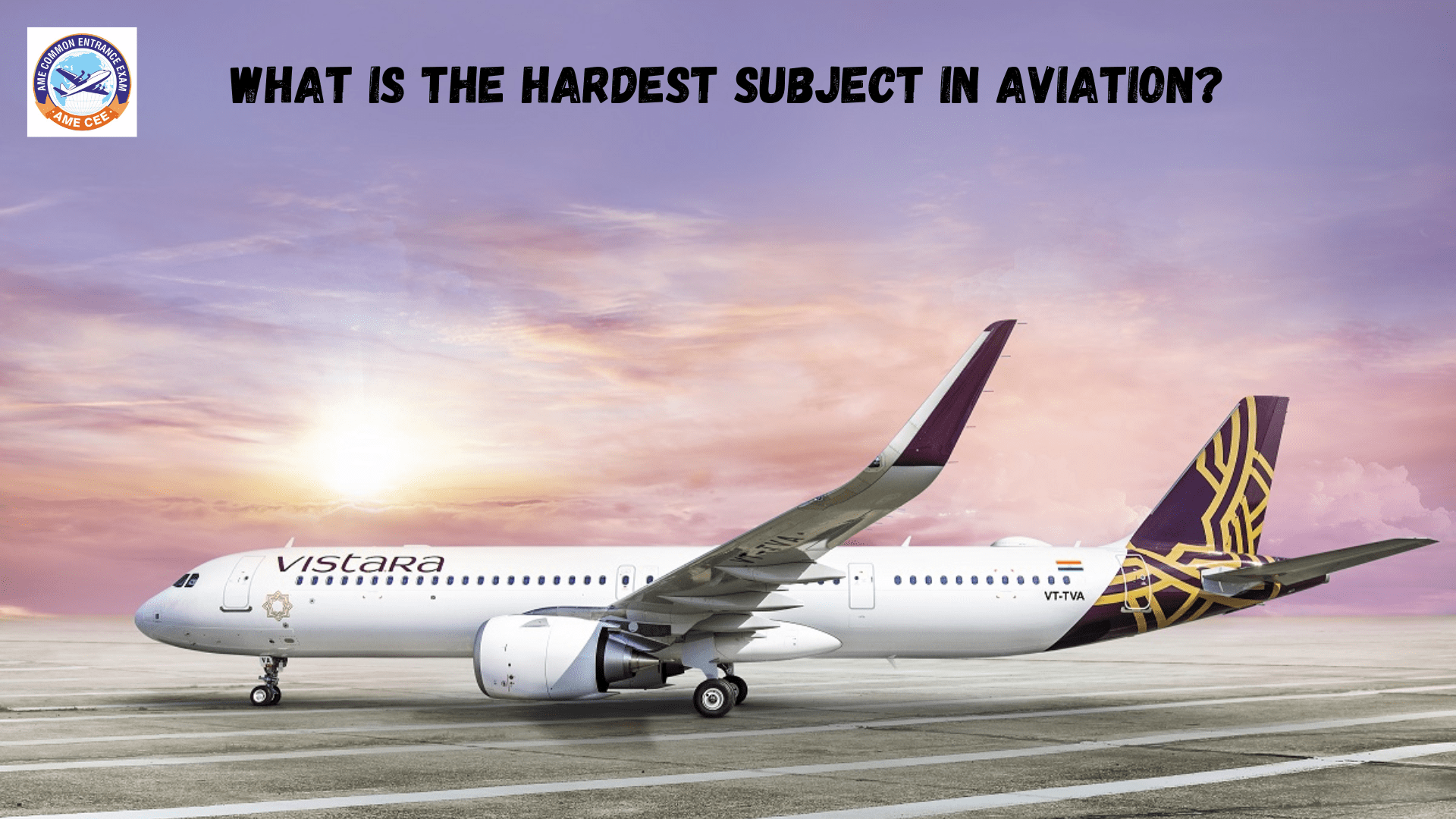Aviation is an exciting and dynamic field that attracts many aspiring professionals. However, pursuing a career in aviation involves mastering various complex subjects that require strong technical knowledge and practical skills. One of the most common questions among aviation students is, “What is the hardest subject in aviation?” While this can vary from person to person based on their interests and aptitude, some subjects are universally considered more challenging due to their complexity, depth, and relevance to real-world applications.
1. Aerodynamics
Aerodynamics is often considered one of the toughest subjects in aviation. This branch of physics deals with the behavior of air as it interacts with solid objects like aircraft wings, fuselages, and propellers. Aerodynamics is foundational in understanding how aircraft generate lift, maintain stability, and maneuver through the air. The subject involves complex mathematical concepts, fluid dynamics, and the study of airflow patterns. For many students, grasping the advanced equations and principles can be challenging.
Key concepts in aerodynamics include:
- Lift and Drag: Understanding how airfoils generate lift and the forces that oppose the aircraft’s motion.
- Bernoulli’s Principle: The relationship between airspeed and pressure differences around the aircraft.
- Flow Separation: How the smooth flow of air around an aircraft can be disrupted, leading to aerodynamic stall.
2. Aircraft Systems and Avionics
Another challenging area is understanding aircraft systems and avionics. Aircraft systems include the mechanical, electrical, and hydraulic components that keep the plane running. The complexity of these systems requires students to not only understand individual components but also how they work together seamlessly. Avionics, the electronic systems used in aircraft for communication, navigation, and flight control, involves intricate knowledge of electronics, software, and systems integration.
Key areas include:
- Electrical and Hydraulic Systems: The intricate network that powers the aircraft and ensures safe operation.
- Flight Control Systems: How the aircraft’s control surfaces are operated, from manual controls to autopilot systems.
- Navigation Systems: Understanding radar, GPS, and other navigation aids used to safely guide aircraft.
3. Propulsion
The propulsion system of an aircraft, which includes engines and power plants, is another technically demanding subject. Aviation students must understand how jet engines and propellers generate thrust, the principles of combustion, and the efficiency of engine components. The propulsion system also ties into broader concepts like fuel consumption, engine performance, and environmental impact.
Key topics in propulsion include:
- Turbine Engines: How jet engines generate thrust through the combustion process.
- Jet Fuel and Efficiency: The types of fuel used and how it affects engine performance.
- Engine Performance and Testing: Understanding the mechanics of testing and maintaining engines to ensure efficiency and safety.
4. Navigation and Flight Planning
Navigation and flight planning is an essential but often complex subject for aviation students. Pilots must understand how to safely navigate aircraft over long distances, taking into account various factors such as wind, airspace restrictions, and weather conditions. Flight planning involves both theoretical knowledge and practical decision-making, as pilots must determine the most efficient and safest route from one destination to another.
Topics involved include:
- Flight Charts: Interpreting various charts and maps used for navigation.
- Meteorology: Understanding weather patterns and how they affect flight routes.
- Air Traffic Control: The role of air traffic control in guiding aircraft and ensuring safe separation in the sky.
5. Air Law and Regulations
Aviation is a highly regulated industry, and understanding the various air laws and regulations is crucial for aviation professionals. These laws ensure safety, security, and proper conduct in the aviation industry. The regulations include international standards, national rules, and specific guidelines set by aviation authorities.
Key points include:
- International Civil Aviation Organization (ICAO): The global body that sets standards for civil aviation.
- Aircraft Certification: How aircraft and pilots must meet specific standards before they can operate.
- Safety Regulations: The laws that govern flight safety, including those related to air traffic management and emergency procedures.
6. Human Factors and Flight Safety
Human factors in aviation studies the role of human performance and behavior in flight safety. This subject focuses on understanding how pilots, crew, and maintenance personnel interact with systems and each other. Miscommunication, fatigue, and poor decision-making can lead to accidents, making this subject critical to aviation safety.
Topics covered include:
- Pilot Decision-Making: How human psychology influences flight decisions and performance under pressure.
- Crew Resource Management (CRM): Training to improve teamwork and communication in the cockpit.
- Fatigue and Stress Management: Understanding how stress and fatigue impact safety and performance.
Why Are These Subjects Difficult?
Several factors contribute to the difficulty of aviation subjects:
- Complexity of Concepts: Many subjects involve complex scientific principles that require a strong foundation in physics and mathematics.
- Real-World Application: The stakes in aviation are incredibly high, making it essential for students to understand not just the theory, but also how these concepts apply to real-world aviation safety and performance.
- Technological Advancements: As aviation technology continues to evolve, students must keep up with the latest advancements in aircraft systems, navigation tools, and regulations.
- Attention to Detail: Aviation requires precision. A small error in understanding a subject like aerodynamics or aircraft systems can lead to dangerous outcomes in practice.
Conclusion
While each student may find different subjects challenging, aerodynamics, aircraft systems, propulsion, and navigation are commonly regarded as the hardest areas of study in aviation. These subjects require a deep understanding of complex principles, as well as practical knowledge. However, for those passionate about aviation, the challenges are part of what makes the field so rewarding. With dedication and a strong foundation in science and technology, students can successfully navigate these difficult subjects and achieve their career goals in aviation.
By understanding and mastering these challenging subjects, aspiring aviation professionals can set themselves up for success in a rewarding career filled with growth opportunities and the chance to be part of the exciting world of aviation.


